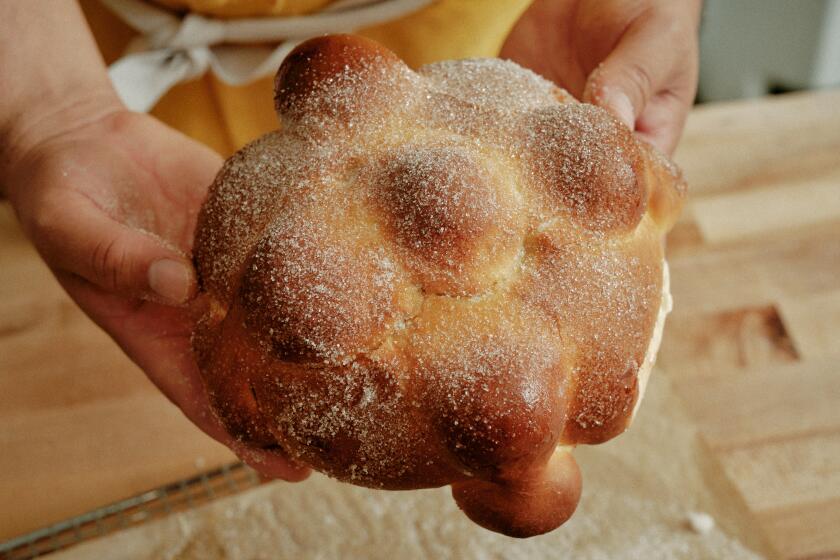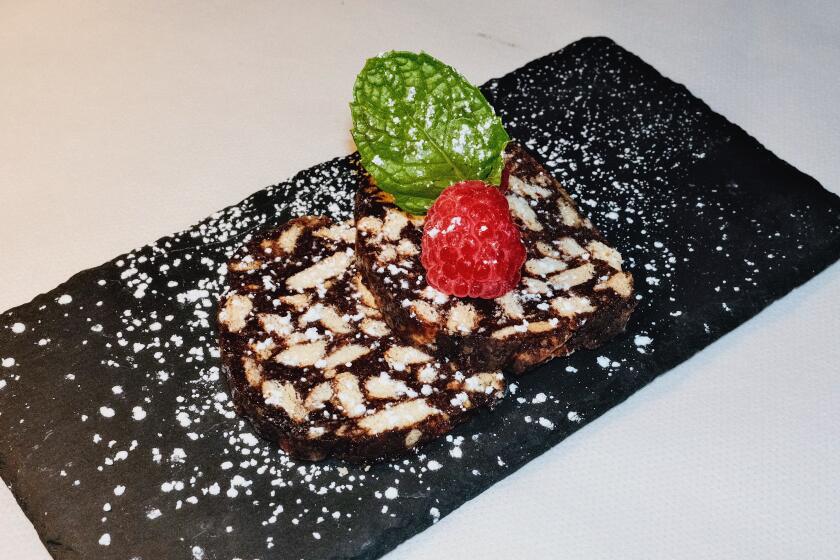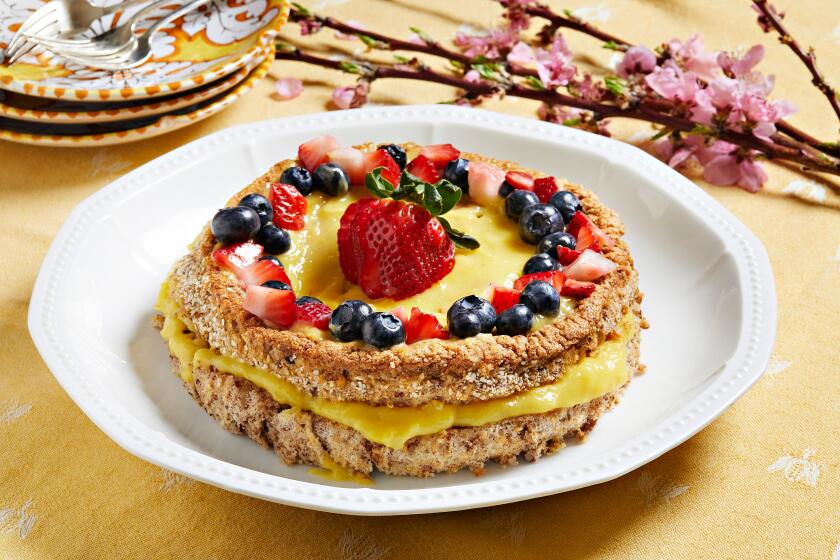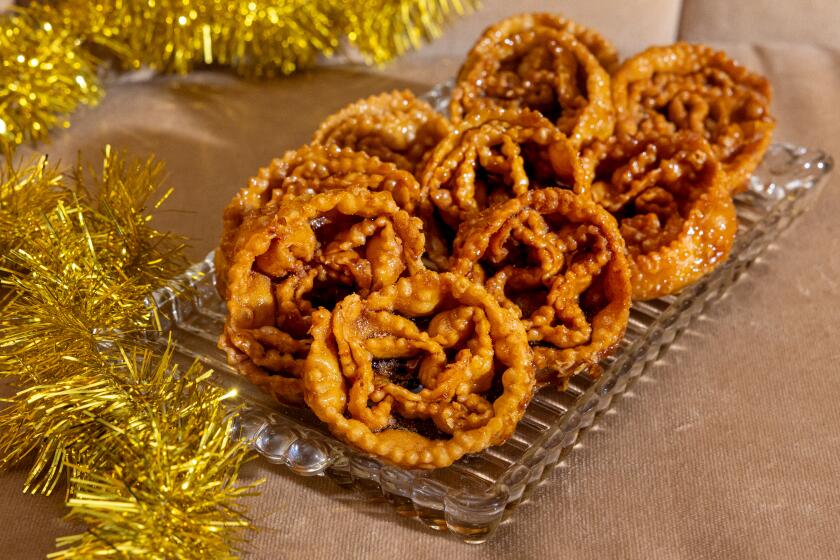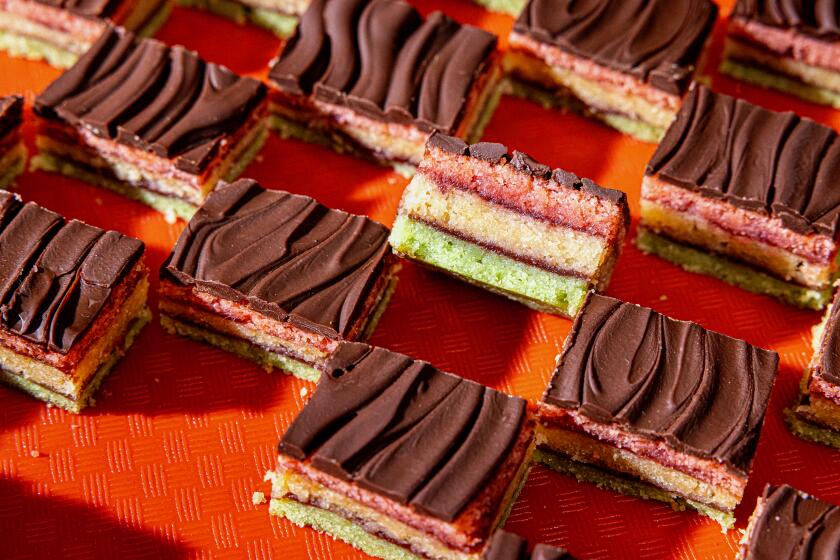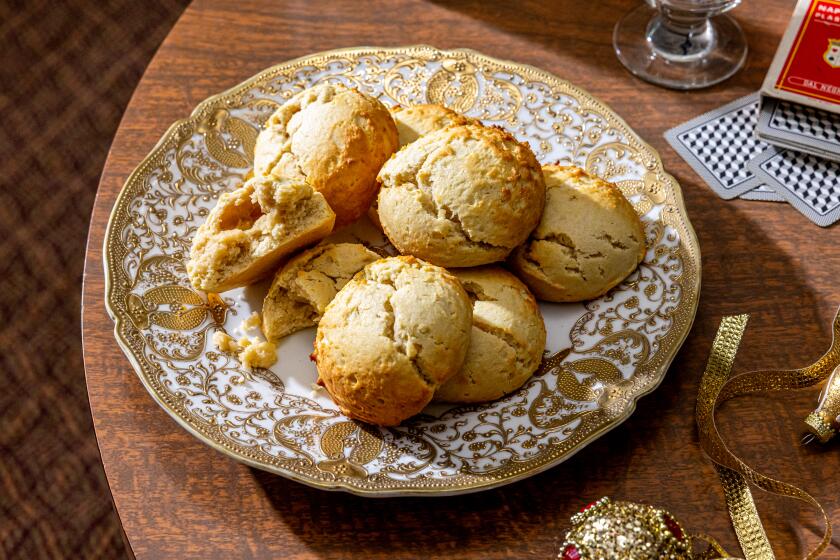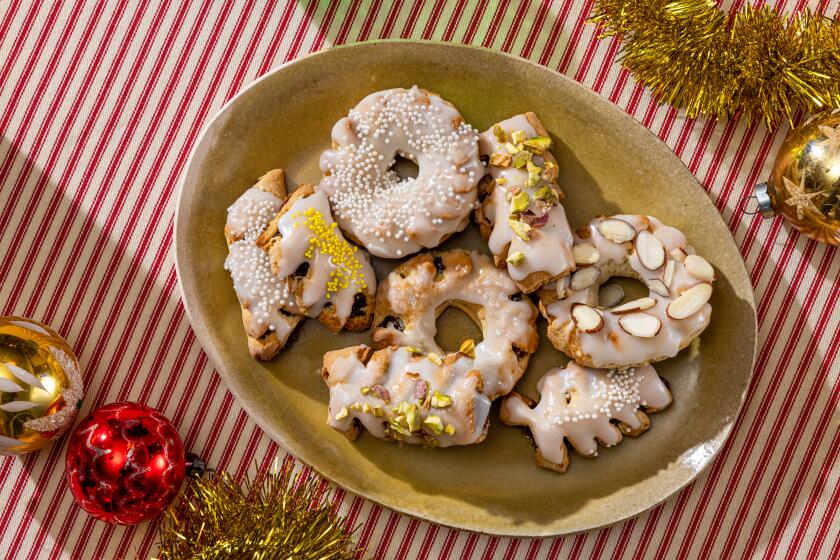Burnt milk ice cream
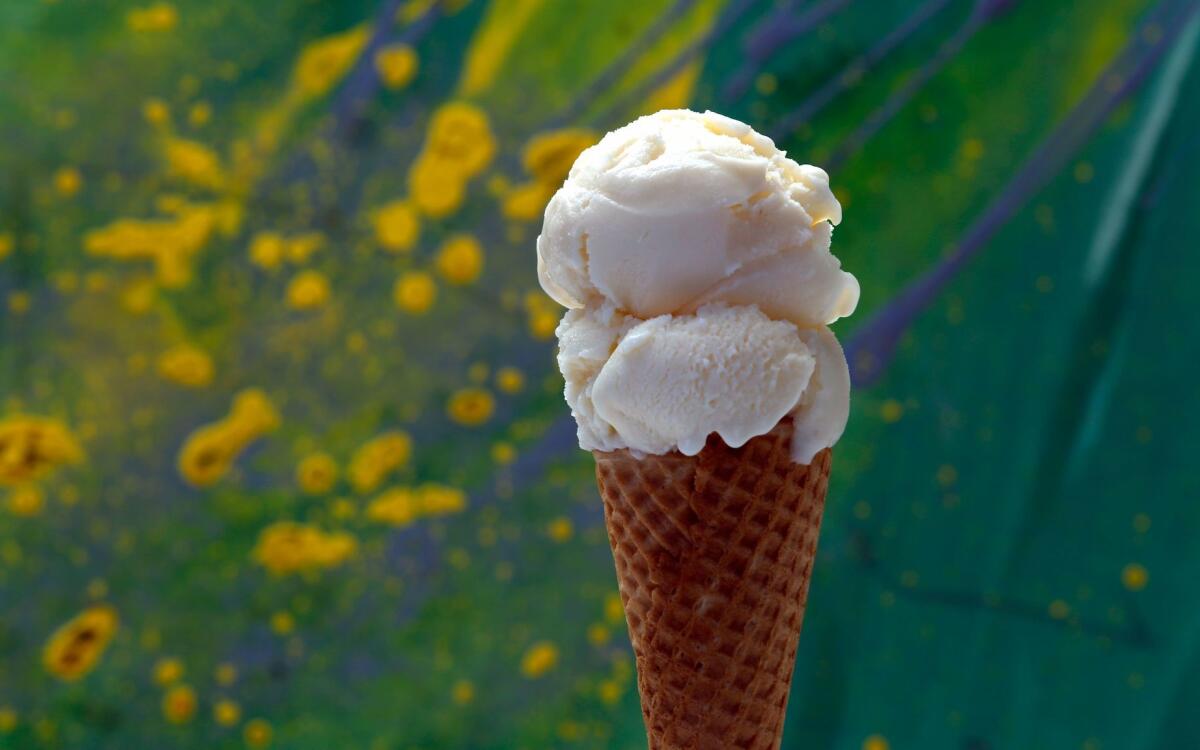
First let us point out that in Los Angeles, October can often feel like the hottest month of the year (blame the Santa Anas), so unlike in some areas of this country, it is actually peak ice cream season here. Which means that now is a perfect time to consider “Mexican Ice Cream: Beloved Recipes and Stories,” the third cookbook by Fany Gerson, the author of “Paletas” and “My Sweet Mexico,” which was nominated for a James Beard Award. The Mexico City native, former pastry chef at Eleven Madison Park, is also the founder of the New York City ice cream shop La Newyorkina. In other words, Gerson knows her ice cream.
“Mexican Ice Cream” is a very useful book, with over 60 recipes for ice creams (helados) and sorbets (nieves de agua), as well as for cones, toppings and sauces. It includes a chapter on “spicy and boozy flavors” (tropical margarita sorbet!) as well as notes on regional ingredients (piloncillo, nopales, Mexican chocolate) and “a brief history of Mexican ice cream.” It is also a very fun book, with terrific photos (by Justin Walker and Fernando Gomez Carbajal) of towering cones, little kids eating ice cream, and vendors on street corners scooping out the stuff. Even the book itself is fun: square in shape and turquoise blue, like the bottom of a swimming pool.
With all that going for it, the cookbook could probably catalog the expected ice cream flavors and still be well worth the price of admission. But Gerson goes well beyond that, exploring regional specialties, differentiating between traditional and modern recipes, and pushing the boundaries — as with a recipe for tamarind-chile sorbet with grasshoppers, a treat she discovered in an ice cream shop in Oaxaca.
If your tastes are more sedate, Gerson has plenty to accommodate those too, from a classic strawberries and cream recipe to one for a terrific burnt milk ice cream, another Oaxacan specialty. One of the lovely things about this book is that it’s adjustable to a wide range of skills and interests — a recipe for mole ice cream includes making the mole from scratch. There are recipes for making your own pineapple-habanero marmalade, and your own goat’s milk caramel.
And while you make batches of tres leches ice cream and deviled mango sorbet, you can sit back and open your brightly-colored book and read the stories behind your dessert. Of the local ice cream makers and little shops that Gerson visited, and of the journey the stuff undertook to get there in the first place. “The first frozen treats,” Gerson writes, “were made from snow gathered from the top of the Popocatépetl and Iztaccíhuatl volcanoes.” Something to think about while your ice cream machine whirs on your kitchen counter.
Cookbook of the Week: “Mexican Ice Cream” by Fany Gerson (Ten Speed Press, $22).
In a heavy-bottomed saucepan (preferably ceramic), combine 3 cups of milk with the cinnamon. Bring to a boil over medium heat and cook, adjusting the heat as needed to maintain a simmer, until the milk has reduced to 1 cup and has a slight burnt smell, about 40 minutes. Pour the mixture through a fine-mesh strainer set over a bowl, discard the cinnamon, and set aside until the milk has come to room temperature, 30 to 40 minutes.
Partially fill a large bowl with ice and water, place a medium bowl in the center of the ice bath and set a fine-mesh strainer across the top.
Pour the remaining 3 cups milk into the saucepan and bring to a simmer over medium heat.
Meanwhile, in a small bowl, mix together the sugar and cornstarch. Add this mixture to the cooled burnt milk and stir until the sugar dissolves.
When the milk in the saucepan reaches a simmer, gradually stir in the burnt-milk mixture, bring to a simmer, stirring constantly, and cook until smooth and slightly thickened, 6 to 8 minutes. Pour the mixture through the strainer into the prepared bowl and stir until cooled. Remove the bowl from the ice bath, cover and refrigerate until cold, at least 4 hours or up to overnight.
Freeze and churn in an ice cream maker according to the manufacturer’s instructions. For a soft consistency, serve immediately; for a firmer consistency, transfer to a container, cover and freeze 2 to 3 hours until hardened.
Get our Cooking newsletter.
Your roundup of inspiring recipes and kitchen tricks.
You may occasionally receive promotional content from the Los Angeles Times.










